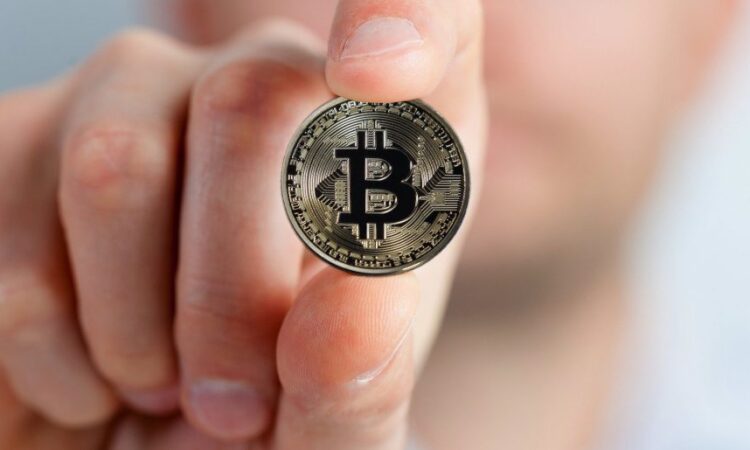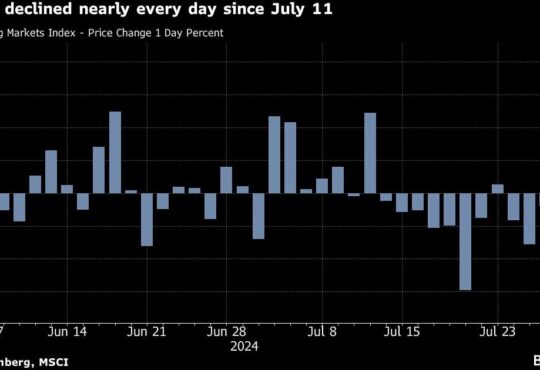
Written by John Plassard, senior investment specialist at Mirabaud Group
Whatever your view of cryptocurrencies, you cannot deny that this theme is becoming increasingly popular. In the US, it’s hard to find a stock market portfolio these days without a (small?) Bitcoin or Ethereum holding. And that’s not all, as this trend could well accelerate if Donald Trump is elected US president. Indeed, it could also happen if Kamala Harris reaches the pinnacle of power in the world’s first economy.
The facts
Donald Trump made a grand entrance recently at the Bitcoin2024 conference in Nashville, Tennessee.
“[T]his is the kind of spirit that built America”, he told the crowd. “This is the spirit that’s going to help us make America great again. … I stand before you today filled with respect and admiration for what the Bitcoin community has achieved. [T]his is the steel industry of 100 years ago. … [It is] the ninth most valuable asset anywhere in the world”.
“The reason I’ve come to address the Bitcoin community today can be summed up in two very simple words: America first. Because if we don’t do it, China is going to be doing it, others are going to be doing it. Let’s do it and do it right. … If crypto currency is going to define the future, I want to be mined, minted and made in the United States.”
Trump claimed the title of first US president to speak at a bitcoin event on Saturday afternoon. He insisted that the US must remain the “crypto capital of the world”, ahead of China and other countries, when it comes to crypto-currency and Bitcoin innovation.
“[B]itcoin is going to the moon, as we say”, said Trump. “[Y]ou’re going to be very happy with me”.
What is Trump’s plan?
Former President Trump has changed his mind about Bitcoin. He was initially critical in 2019. At the Bitcoin conference in Nashville, Trump pledged that, if re-elected, his administration would retain all the Bitcoins held by the federal government, creating a “strategic national Bitcoin stockpile”.
He pointed out that the federal government currently possessed almost 210,000 Bitcoins, or around 1% of the total supply, most of which had been seized from cybercriminals. Trump promised that his administration would never sell these bitcoins, thus adhering to the fundamental principle of holding Bitcoin.
He promised to fire SEC chairman Gary Gensler “on day one”, adding that he would appoint a crypto-currency adviser to “design transparent regulatory guidance” within 100 days.
“We will end the war on American energy and we’re going to drill baby, drill. We have to. We have more liquid gold under our feet than any nation in the world. With low energy costs, America will be a Bitcoin mining powerhouse. You won’t have to move your family to China. Bitcoin and cryptocurrencies will grow our economy and strengthen our country in the long run”.
In his speech, Trump contrasted the Republican Party’s pro-crypto stance with the Biden administration’s regulatory approach.
He criticised President Joe Biden and Harris for their “crackdown” on crypto-currencies and promised to dismantle what he called an “anti-crypto crusade”.
Trump has pledged to fire SEC chairman Gary Gensler and create a pro-crypto advisory board. This marks a significant shift from his earlier scepticism of Bitcoin, as he now seeks to capitalise on the growing influence of the crypto lobby and voter interest. The conference also highlighted the bipartisan interest in cryptocurrencies, with some Democrats opposing the politicisation of the issue and arguing for balanced regulation.
Trump’s new pro-crypto stance is influenced by figures such as Vivek Ramaswamy and J.D. Vance. The Republican Party is now committed to defending Bitcoin mining and opposing the creation of a central bank digital currency.
Trump is hoping to attract young, tech-savvy voters and is also aiming to counter the influence of Democratic regulations on cryptocurrencies. However, his promise was less extreme than other proposals put forward at the conference, such as Robert F. Kennedy Jr’s plan to create a massive Bitcoin reserve.
Harris to join the dance
The Democrats’ vision under Biden was as follows:
- Strict regulation and concerns over financial crime: Many Democrats are concerned about the use of cryptocurrencies for illicit activities, including money laundering and terrorist financing. For example, new Democrat-backed legislation aims to regulate cryptocurrency blending services, which anonymise transactions and can facilitate money laundering. Democrats like Brad Sherman and Sean Casten stress that these services need to be closely monitored.
- Security and consumer protection issues: Leading figures such as Senator Elizabeth Warren have expressed concerns about the risks posed by cryptocurrencies to consumers and the financial system. They stress the need for rigorous regulation to protect investors and prevent fraud.
- Opposition to cryptocurrency-friendly regulations: President Biden and his allies have shown some reluctance to relax regulations on cryptocurrencies.
For example, the Biden administration has threatened to veto bipartisan legislation that would have eased SEC guidelines on cryptocurrencies. However, following President Biden’s withdrawal from the presidential race, Vice President Harris could see cryptocurrencies as an area for a Democratic Party revival.
Kamala Harris may soon recognise that cryptocurrencies are here to stay and propose developing policies accordingly. She could have staff trained on the subject and work with industry players.
Secondly, Kamala Harris could commit to working with the cryptocurrency industry, appointing regulators who understand and do not look down on the technology. It should be remembered that cryptocurrencies do not fit easily into existing regulations and require an extremely nuanced approach.
Last but not least, the US industry is crucial to national security and the dominance of the dollar. The Harris camp cannot deny this.
A more constructive approach from the Vice-President would be a unique (and opportunistic) opportunity to show that Democrats support technological innovation at a critical time before the elections.
How many Americans own cryptocurrencies?
According to a letter endorsed by several Democratic members of the US Congress, more than 52 million Americans have adopted digital assets, which they see as a way of democratising finance, stimulating innovation and creating new economic opportunities.
According to recent polls, 19% of voters have bought crypto-currencies, 19% identify as Democrats and 18% as Republicans. 24% of voters who own cryptocurrencies are independents.
The data shows that digital assets are being adopted at higher rates among Generation Z, African Americans and Latinos, and immigrant communities – key Democratic constituencies – than traditional financial products. These technologies are revolutionising opportunities for these communities, reflecting their transformative potential.
From an electoral perspective, crypto and blockchain technologies have an outsized impact in securing victories ahead of and behind the polls. Cryptocurrencies are at the heart of voters’ concerns in key swing states, and a balanced approach to cryptocurrencies that drives innovation while protecting consumers is very positive for policymakers and candidates.
More than 20% of voters in key states have identified crypto as a major issue in the 2024 election, and it’s critical that the Democratic Party makes a compelling case to crypto voters while ensuring that consumers benefit from thoughtful and appropriate regulation.
According to recent surveys, 4 out of 5 voters agree with that the current financial system favours elites over regular people. Digital assets and blockchain technology are not just financial instruments, but represent a revolutionary change that can improve transparency, reduce fraud and create a more inclusive financial system.
Reducing the national debt?
Ideas abound when it comes to cryptocurrencies, not least that of … reducing the US debt! Republican US Senator Cynthia Lummis intends to introduce legislation to create a “strategic bitcoin reserve” that would reduce the US national debt by purchasing one million Bitcoins over a five-year period.
Bitcoins would be kept for at least 20 years, she added.
“This is the solution, this is the answer, this is our Louisiana Purchase moment”, the Wyoming senator said on stage after former President Trump endorsed the idea of a Bitcoin reserve.
At the current price, 1 million Bitcoins are worth around $68 billion.
What does the future hold for bitcoin?
For the first time, the Bitcoin community has seen a former and potential future US president endorse the cryptocurrency as a strategic reserve asset for the country.
This accelerates the adoption of Bitcoin, whether or not Trump is elected the next president. Harris should soon follow.
The idea that the US could potentially incorporate Bitcoin into a currency standard has officially been floated.
Following the Nashville event, Bitcoin climbed towards $70,000, reaching the key level for the first time in six weeks.
Conclusion
Cryptocurrencies, particularly Bitcoin and Ethereum, are becoming increasingly popular. This phenomenon, which is now undeniable, is taking on a political dimension by attracting a large electorate. It’s an encouraging development.



